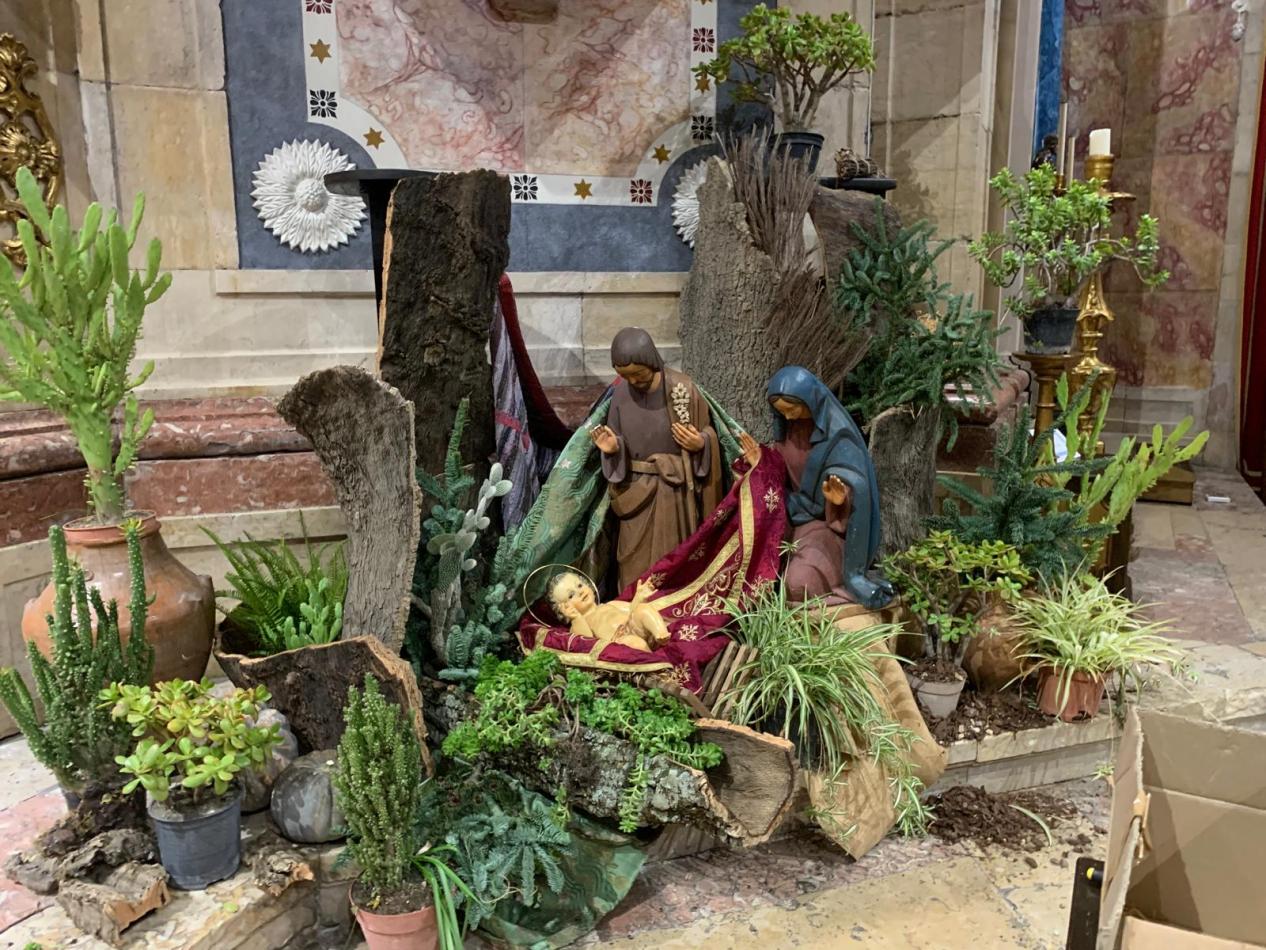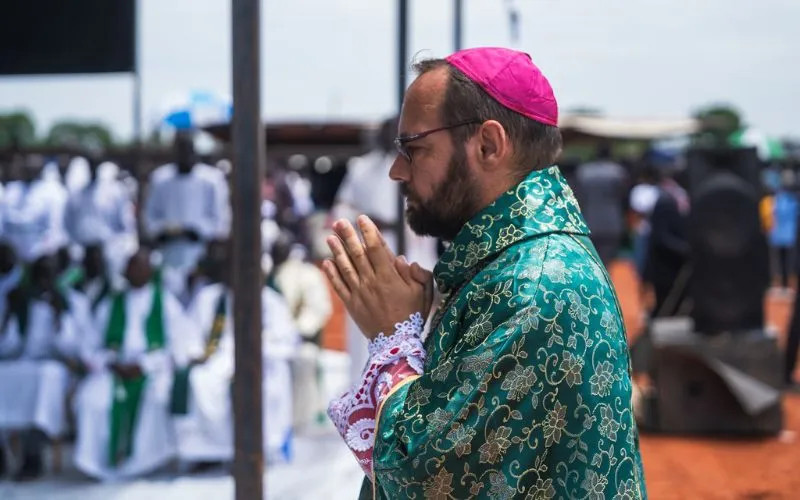Daniel Comboni
Comboni Missionaries
Institutional area
Other links
Newsletter
Thursday, December 19, 2024
Last July, Pope Francis erected the new diocese of Bentiu, hiving off part of the territory of the diocese of Malakal. My appointment as the first bishop of this diocese was a gift and a surprise. In August, I went to take possession of Bentiu diocese and to celebrate mass with the people.
The territory is very large. It covers an area of almost 38,000 km2. The population numbers about 1,130,000 people, belonging to the two ethnic groups – Dinka and Nuer – whose relations are not easy. There are 450,000 Catholics and about 350,000 Protestants. The rest of the population follows its traditional religion. There is also a small but significant presence of Muslims.
There are seven parishes, all with a very large area and a very large number of chapels. After the priestly ordination of two young priests, on 10th November, there are now nine diocesan priests. In the diocese, we have a community of Combonian missionaries who look after the parish of Leer, and three Capuchin friars who look after the parish of Rubkona.
This part of the population is certainly among the most marginalised and poor in the country. The area is very isolated and difficult to reach. There are no viable roads and, for many months of the year, one can only get there by plane. The city of Bentiu was devastated by the civil war that lasted from 2013 to 2019.
Rubkona hosts the largest Internally displaced people (IDP) camp in the country: over 130,000 people, forced to live totally dependent on humanitarian aid. This camp was created because of the violence against civilians perpetrated during the conflict. After the peace agreement and the creation of the government of national unity in 2019, people remained in the camp due to both poverty and floods. The Nile has, in fact, flooded, covering more than half of the territory, submerging villages and arable land. The UNHCR reports that 90% of the population has abandoned their villages to find refuge in higher and drier ground. In the diocese there is also the presence of about 70,000 Sudanese refugees, mainly ethnic Nuba, in the camps of Yida and Jamjang. There is a lot of misery and the population lives in a very vulnerable condition.
Added to this is the ecological crisis, which is always linked to a crisis of humanity. Indeed, economic development disconnected from ethics does not reduce inequalities, but increases them, along with glaring injustices. In fact, the oil that is extracted here has not brought prosperity to the population. It has been a source of personal enrichment for the ruling class, it has fuelled violence in the country and in the areas where it exists, and it continues to serve as the main engine of competition between the elites within the country's political system. Oil production has had a negative impact on the environment due to the leakage of toxic substances, which today, through flooding, pollute the water sources from which the population draws, not without negative health effects. It is a development that has prioritised the profit of a few groups at the expense of the common good, namely the protection of the weakest, the promotion of peace and a more dignified life for all.
Christmas is approaching. It seems to me that the occasion and the meaning of this celebration carry a very strong prophetic message for people today, as well as for the Church, whose mission must be embodied in real problems, that is, those that threaten or even take away life.
The Church Fathers remind us that, in the incarnation, “God became man so that man might become God.”. Man, no matter how hard he tries, whether through power or science or technology, cannot become God. These efforts only lead him to alienate himself and lose his humanity. The God-made-man deifies us as men in communion with him. Thus, he does not deny us of being human persons, but he heals us from the dominant mode of our being human: a mode that is producing horrors, like the war in the Middle East and so many other bits of war, misery, injustice that make up a world with a disfigured and inhuman face.
The child Jesus shows us the true face of who we are: pilgrims seeking likeness to God, communion with him and our brothers and sisters. Jesus asks for everything and not just a part: he asks for everything that is needed for his dream to take shape. Only those who do not think of themselves live responsibly, that is, really live. Only the Church that does not exist for her own self-celebration or preservation, but for the poor people of God, is truly Church. This is the path inaugurated by Christmas that opens us up to new paths and perspectives.
Have a good journey of new life!
Father Christian Carlassare, mccj
Bishop of Bentiu and Apostolic Administrator of Rumbek (South Sudan)





